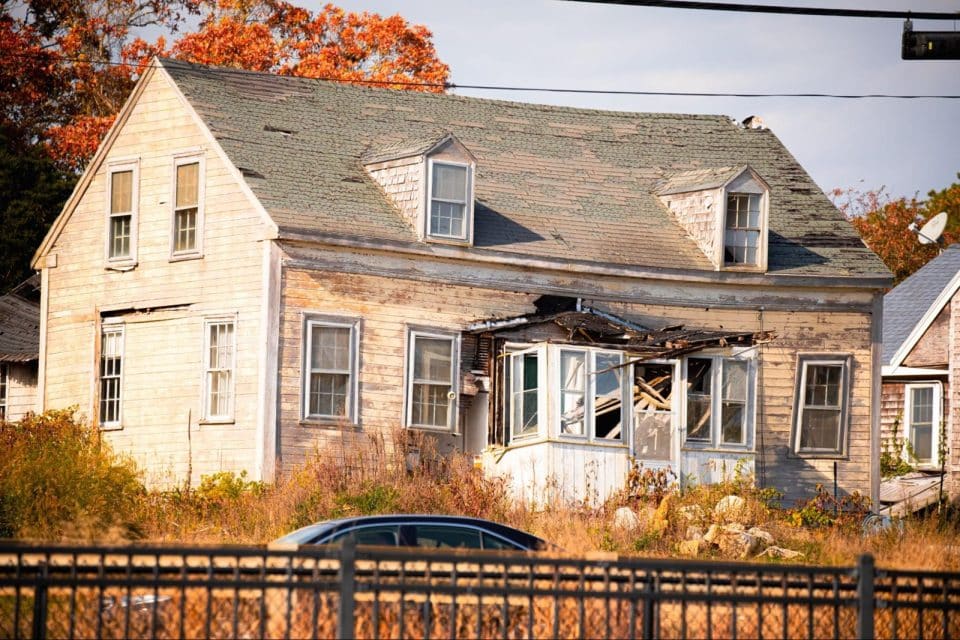When a house gets condemned, it means that the property is deemed unfit for habitation due to serious safety or health concerns. This legal action can arise from structural damage, environmental hazards, or significant neglect, and it carries strict consequences. Owners must address the issues outlined by local authorities before the home can be occupied again. Understanding what leads to condemnation and how to resolve it can help homeowners make informed decisions.

Why Would a Property Get Condemned?
A house gets condemned when it presents risks that make it unsafe to live in. Here are some common reasons:
- Severe Structural Damage: Problems such as a collapsing roof, shifting foundation, or major termite infestations can result in a property being declared unsafe. For example, if a tree damages the roof during a storm and repairs aren’t made, the home might be condemned.
- Health Hazards: Issues like black mold, asbestos, or toxic materials can lead to condemnation. These hazards pose serious risks to residents’ health and often require professional remediation.
- Unsanitary Conditions: Properties that accumulate significant waste or become overrun with pests may be deemed uninhabitable. This situation is common in hoarder homes or abandoned properties.
- Environmental or Weather Damage: Flooding, tornadoes, and hurricanes can cause structural and environmental damage. Homes affected by such events often face inspection and may require extensive repairs to be considered safe.
- Utilities and Systems Failures: If a house lacks running water, electricity, or a functioning sewage system, it may be condemned until repairs are made.
Once a house is condemned, it cannot legally be inhabited or rented until the listed issues are resolved.
Signs That a Property May Be at Risk of Condemnation
- Official Notices: Local authorities often provide written warnings about violations before officially condemning a property. Ignoring these notices increases the likelihood of legal action.
- Utility Shutoffs: If utilities are shut off for extended periods, it can signal that the property is not fit for habitation.
- Significant Code Violations: Multiple unaddressed building code violations often lead to condemnation.
How Can You Get a Property Uncondemned?
To remove a condemnation status, the property must be restored to meet safety and habitability standards. Here’s how:
- Identify and Resolve Violations: Review the specific reasons for condemnation listed in the notice. Common repairs include fixing structural damage, removing hazardous materials, and restoring utilities.
- Hire Professionals: Certain repairs, like mold remediation or foundation stabilization, often require licensed contractors to ensure compliance with local codes.
- Request Inspections: After completing repairs, contact local authorities for an inspection. If the home meets all standards, the condemnation status may be lifted.
Why Selling a Condemned Property May Be the Best Option
Repairing a condemned property can be expensive, time-consuming, and stressful. For many homeowners, selling the property “as-is” is a smarter solution.
Challenges of Repairing a Condemned Property
- Costs can range from tens of thousands to hundreds of thousands of dollars.
- Obtaining permits and navigating local regulations can add delays.
- Structural issues may require extensive reconstruction, which isn’t feasible for all homeowners.
Benefits of Selling a Condemned Home for Cash
- No Repairs Needed: Cash buyers purchase properties in their current state, saving homeowners from costly repairs.
- Fast Closing Process: Transactions can be completed in as little as two weeks.
- Avoid Legal and Financial Risks: Selling quickly helps homeowners avoid accruing fines or further violations.
- Stress-Free Process: Professional cash buyers like Home Buyers of Virginia handle all the paperwork and inspections.
How Home Buyers of Virginia Can Help
At Home Buyers of Virginia, we specialize in buying properties in any condition, including condemned homes. Here’s why working with us is a great choice:
Simple Process
We streamline the selling process into four easy steps:
- Contact Us: Share basic details about your property by phone or online form.
- Schedule a Walkthrough: We’ll evaluate the property at a time that’s convenient for you.
- Receive a Cash Offer: Our offers are fair, transparent, and come with no obligations.
- Close on Your Schedule: Choose a closing date that works for you, whether it’s in days or weeks.
Guaranteed Fair Offers
We provide competitive cash offers based on the property’s potential, not its current condition.
No Hidden Fees
There are no realtor commissions, closing costs, or hidden charges when you work with us.
Local Expertise
With nearly a decade of experience and a deep understanding of the Richmond area, we are well-equipped to help homeowners navigate challenging situations.
Common Myths About Selling Condemned Properties
Myth 1: You Can’t Sell a Condemned Property
- Truth: Condemned properties can be sold, but finding the right buyer is key. Cash buyers don’t require traditional financing, making them ideal for these situations.
Myth 2: Repairs Must Be Made Before Selling
- Truth: Professional cash buyers purchase properties “as-is,” so no repairs are needed.
Myth 3: Selling a Condemned Property is Complicated
- Truth: With the right buyer, the process is straightforward and stress-free.
Sell Your Condemned Property Today
If you have a condemned property in Richmond, don’t let the situation overwhelm you. At Home Buyers of Virginia, we’re here to help. Our team offers a fast, hassle-free solution to selling homes in any condition. Call us today at 804-391-0884 or fill out our online form for a no-obligation cash offer. Let us take the stress out of selling your property and help you move forward with confidence.
